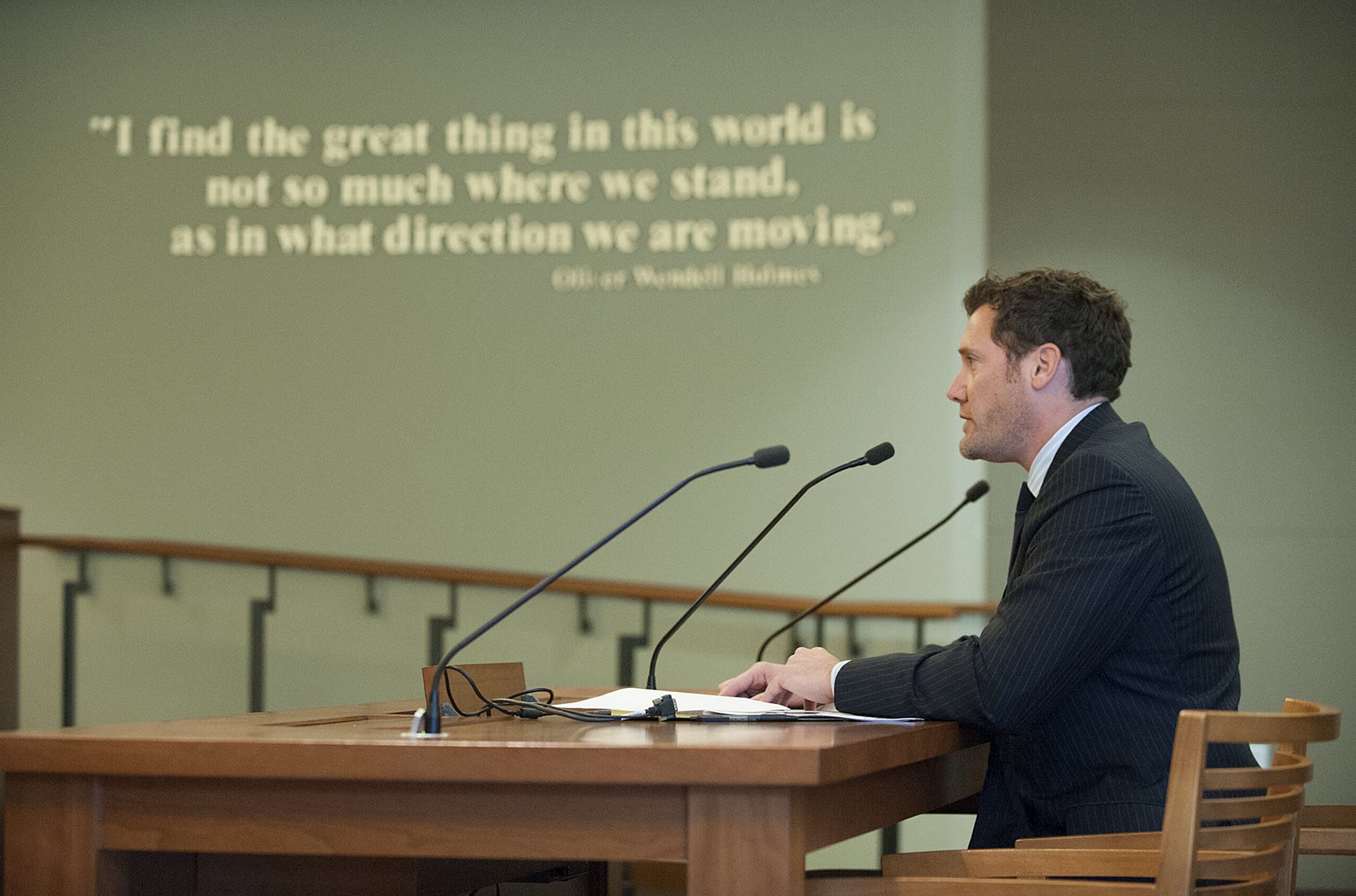The city of Vancouver’s salary review commission more than doubled the mayor’s salary on Friday. They also gave substantial raises to the rest of the city council.
The pay hike increases the mayor’s monthly salary from $2,300 ($27,600 annually) to $5,000 per month (or $60,000) beginning in January.
Mayor Tim Leavitt, who testified in favor of the salary hike, will benefit from the 117 percent pay raise for at least one year. The increase takes effect at the start of the 2017-2018 budget year, and his term ends at the end of 2017.
The commission, which was established by the city charter, met several times to discuss the salary increase.
After listening to members of the public — a handful of people testified — the commissioners remained divided and voted 3-2 for the pay increase.
The current monthly salary for the mayor pro tem, a city councilor who acts as mayor in the mayor’s absence, will go from $2,000 per month (or $24,000 annually) to $3,125 (or 37,500 annually), a 56.25 percent increase. The rest of the city councilors, who currently earn $1,800 monthly ($21,600 annually), will jump to $2,708 per month ($32,496 annually) or a 50.4 percent increase.
Overall, the commission members were divided between those who felt like a bigger salary was necessary to attract a diverse pool of qualified candidates and those who pointed out it’s a public service position, not a full-time job, and should come with a small paycheck.
Public testimony
Leavitt was the first person to testify on Friday morning.
He pointed to his long career serving on public bodies, from the planning commission to the city council.
Since he is not planning to run for re-election, he said, he felt at ease to speak frankly to the commission.
“Very simply, the effort necessary to meet the responsibilities and the accountability that our public demands of the city council, and more specifically the position of mayor, far, far outweighs the scant compensation that is offered,” Leavitt told the commission.
The current pay scale encourages retired individuals with a pension, or those who have some outside source of income, such as a working spouse or who are independently wealthy, the mayor said. It discourages others, he added.
“The level of compensation shouldn’t be a barrier (for) passionate and qualified individuals,” Leavitt said.
Perhaps addressing former mayors in the audience who testified against a pay hike, Leavitt said the city of Vancouver is a thriving, growing city that holds increasing importance in the region.
The city is not the same as it was in 1986, nor 2006, Leavitt said.
Leavitt said he spends an average of 30 to 40 hours a week on mayoral duties, often more. In an earlier interview with The Columbian, he said the job warrants $100,000 a year.
A civil engineer, Leavitt said his full-time employer, PBS Engineering and Environmental, cut his salary by 50 percent, or $60,000, because he is away from the office so frequently.
Pat Jollota, who sat on the Vancouver City Council from 1990 to 2010, argued against a hefty raise and pointed to the city’s form of governance.
Vancouver has a city manager form of government, so City Manager Eric Holmes oversees the administrative duties and is paid $210,000, she noted.
The mayor is charged with presiding over city council meetings and serves as the city’s figurehead at events. The mayor and city council set policy and represent the city on various boards.
Jollota said the office needs to be considered a public service duty. Plus, she said, anyone can run for mayor.
Unlike the city manager position, the mayor doesn’t need any particular qualifications to serve, she said.
“I don’t want anyone thinking this is a good way for me to earn a good salary and not have to qualify for it,” she said.
In other Washington cities with a city manager form of government — Bellevue, Yakima, Spokane Valley, Kirkland, Kennewick, Lakewood, Olympia, Pasco, Richland and Shoreline — the average monthly salary is $1,413 for mayors and $1,467 for councilors, The Columbian reported previously. Vancouver’s pay is already 163 percent above average for mayors and 123 percent above average for councilors, the salary commission was told.
Commission’s power
The five-member salary commission, which is appointed by the mayor, has absolute power to set the salaries of the mayor and the council. The decision is not subject to review by the council.
Commissioner Stan Girt, who voted against the pay raise, wondered what city jobs or services would have to be cut because of the pay raise. He said he would prioritize parks and police officers over a pay hike. He also worried such a large pay increase would create a full-time mayor and inadvertently change the city’s form of governance.
Commissioner Thomas Hackett said he was struggling between finding a balance between ensuring qualified, diverse candidates could enter the race and ensuring a public service job wasn’t transformed into a lucrative payday.
In the end, Girt and the commission’s chair, Barry Hemphill, voted against the salary increase. Commissioners Magan Reed, MarCine Miles and Hackett voted in favor.
What’s next
In 2014, the city council tried to reject its 2015 pay increase because city employees’ salaries hadn’t increased significantly in the previous years. The salary commission hiked their pay anyway.
Citizens could put a referendum to overturn the salary ordinance on the upcoming ballot. But to do so, they would need to collect about 2,700 signatures in the next 29 days.
Previously, the commission asked the current city councilors if the pay was adequate. Councilors Bart Hansen, Alishia Topper, Jack Burkman and Mayor Pro Tem Anne McEnerny-Ogle said the pay was not a significant consideration when deciding to run for office.
Amy M.E. Fischer of The Columbian contributed to this report.




